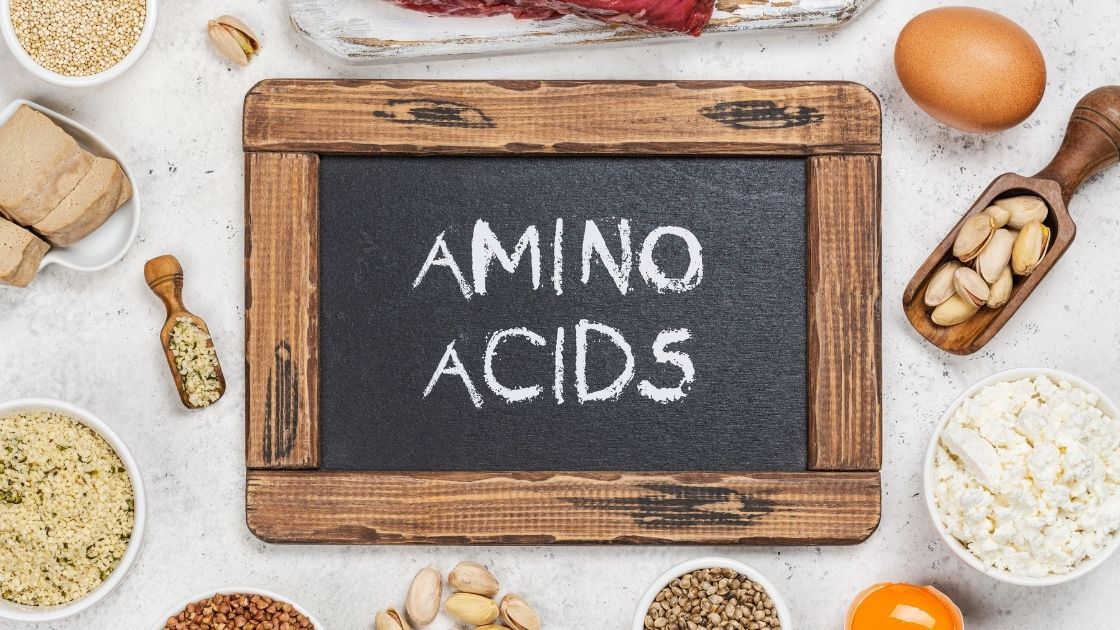Amino acids which are called the building blocks of life, constitute body proteins. Proteins are of prime importance to the human body as they are the basic nutrients required for the formation, growth, maintenance and repair of the different body structures. Proteins are essential for the production of compounds vital for normal body functions, such as hormones, neurotransmitters, enzymes and immunoglobulins commonly known as antibodies. In this respect, amino acids, serving as building blocks of the antibodies, tissues and organs of the immune system, are regarded as immune system builders.
A lot of studies have emphasized the significant role of amino acids as fundamental components of the body’s immune system. The key role of amino acids in promoting the health of the immune system has been widely appreciated in clinical practice particularly in the management of patients with deficient diet, infectious diseases and those who underwent operative procedures.
Aside from serving as building blocks in the production of antibodies, studies have noted that amino acids help in the body’s fight against infection by supporting the proliferation and activation of white blood cells, which are called “the body’s soldiers”. Amino acids allow the formation of signaling molecules, the protein substances that function for a coordinated immune function
Peng Li, together with a team of researchers, detailed in a scientific review published in the British Journal of Nutrition in 2007, the results of various studies indicating the important role of amino acids in boosting the immune responses by regulating some immune system mechanisms including the activation of white blood cells such as T lymphocytes, B lymphocytes, natural killer cells and macrophages; gene expression and lymphocyte proliferation; and the production of antibodies, and other signaling proteins of the immune system.1
It has been long recognized that the lack or deficiency of proteins in the diet can adversely affect the immune function and increase the body’s susceptibility to infection. As explained by Peng Li and his co-authors, decreased concentrations of amino acids in the plasma following protein malnutrition compromises the production and function of immune cells.1
When the diet fails to meet the body’s requirement for amino acids, or when the body is in a state of nutrient losses which increases protein requirements, as in serious or chronic illnesses, infections and trauma, supplementation of essential amino acids becomes inevitable.
Supplementation with amino acids is specifically valuable during states of increased protein demand by the body and considerable protein or nutrient losses such as in infectious diseases and when the body does strenuous physical activities. Increased protein loss and increased protein requirements are also associated with stressful conditions, pregnancy, wounds, bone fracture, burns, post-operative states, period of convalescence, restrictive diet, anorexia and starvation.
Among amino acids considered for supplementation, studies have paid particular attention to the branched-chain amino acids or BCAAs referring to the group of three essential amino acids: valine, leucine, and isoleucine.
In a scientific review written in 2006 for the Journal of Nutrition by Oxford Academic, researcher Philip Calder explained that the cells involved in immune system functions incorporate branched chain amino acids into proteins. During infection, there is a significant increase in the demand of the immune system for substrates such as amino acids that become precursors for the manufacture of protective protein molecules.2
Various studies have shown that supplementation of BCAAs, Isoleucine, Leucine, and Valine, helps prevent symptoms of infection among athletes and improve survival of septic patients.
Reinaldo Abunasser Bassit and his colleagues from the Institute of Biomedical Sciences, University of São Paulo, Brazil did a research on the benefits of BCAA supplementation in athletes participating in a triathlon and found that BCAA led to significantly lower incidences of infection (33.84%) when compared with those of receiving placebo.3
Meanwhile, in a study published in Critical Care Medicine in 1997, researchers from Madrid, Spain led by Dr. Abelardo García-de-Lorenzo found that placing septic patients on parenteral nutrition with more branched chain amino acids significantly lowered mortality rates, thereby improving survival.4
Appreciating the fundamental link between protein intake and the body’s ability to fight off illnesses and infections, it becomes imperative to ensure the individual’s adequate supply of amino acids, the building blocks of the protein components of the immune system, to optimize the body’s immunocompetence.
References:
Li P, Yin YL, Li D, Kim SW, Wu G. Amino acids and immune function. Br J Nutr.
Calder PC. Branched-chain amino acids and immunity. J Nutr.
Bassit RA, Sawada LA, Bacurau RF, Navarro F, Costa Rosa LF. The effect of BCAA supplementation upon the immune response of triathletes. Med Sci Sports Exerc.
García-de-Lorenzo A, Ortíz-Leyba C, Planas M, et al. Parenteral administration of different amounts of branch-chain amino acids in septic patients: clinical and metabolic aspects. Crit Care Med.

